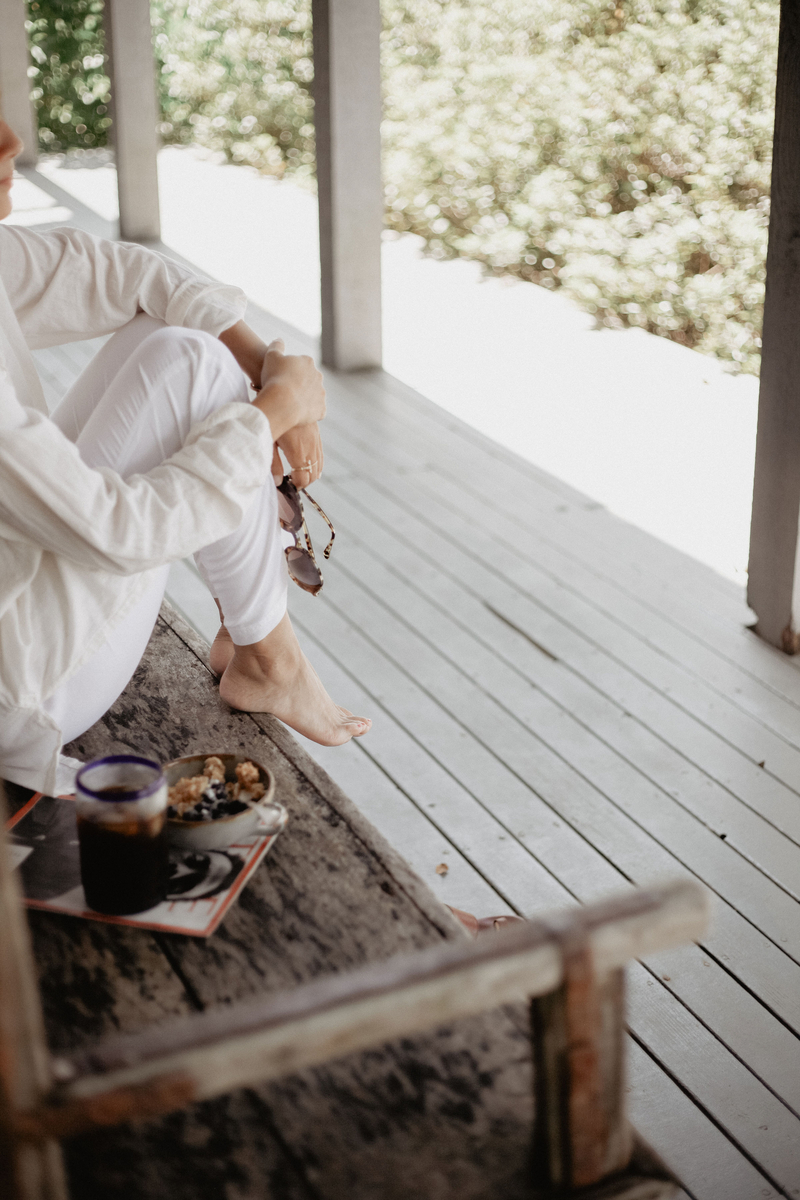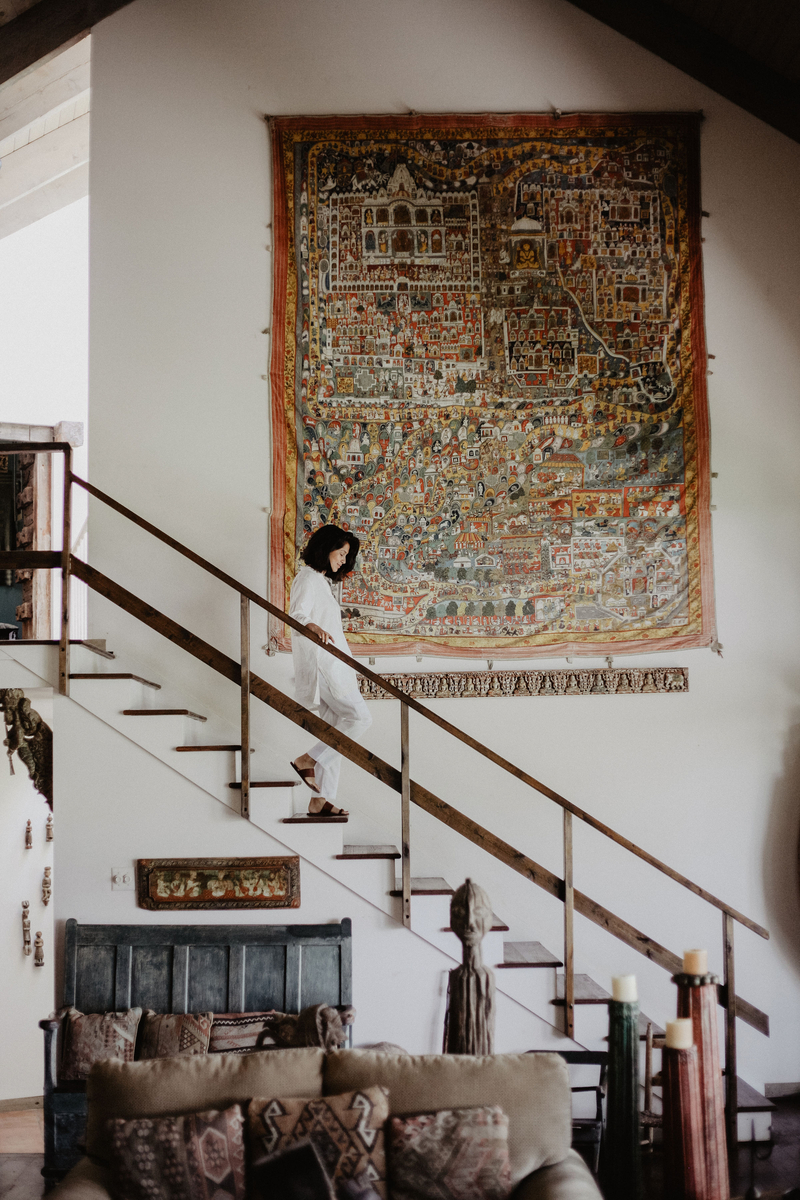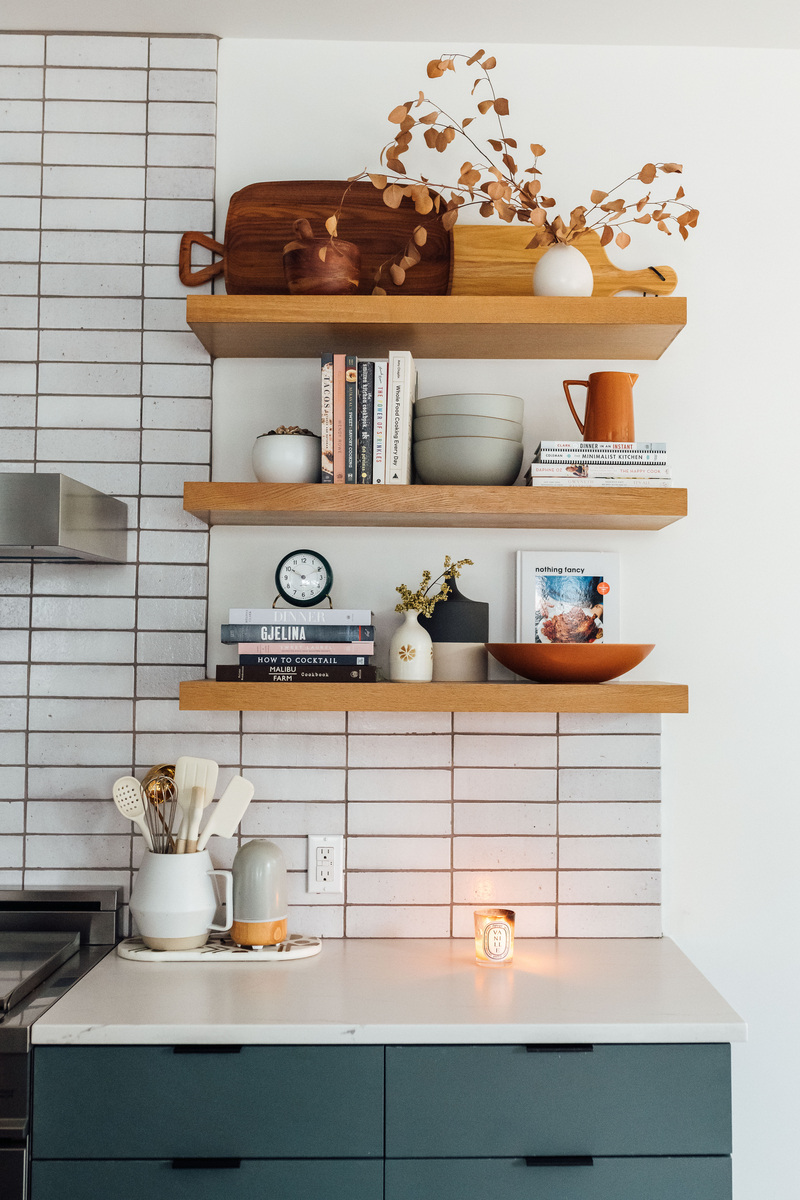Am I missing out on my true life’s purpose?
It’s a question we’ve all asked ourselves at some point in our journeys. How do we know if the thing we’re doing with our lives is truly aligned with what we were born to do?
I recently listened to a podcast interview with designer Nate Berkus, in which he shared how, even as a kid, he cared deeply about his surroundings. He craved his own space—in his case, a cement-walled basement in his childhood home that he transformed into a bedroom he loved. Even at such a young age, he felt a deep drive to create a space that exuded the energy that he wanted to feel. I’m always fascinated by these stories of people who are born with such an inner calling that even their childhood interests point to what they’ll ultimately become.
And although we may not all be born with a vision for our future careers, I believe that all of us are born with a God-given purpose. Even if our path to discover it is more meandering, there’s a sacred place where our passions and abilities intersect. And when we discover and lean into it, we bring something unique to the world.
That’s why I love the Japanese concept of Ikigai. It encompasses all of these ideas: what we love to do, what we’re good at, and what the world actually needs. The place where they intersect is our ikigai—translated roughly as “our reason for being.” I’ve been fascinated by this concept since I first began learning about it last year. And although I’m no ikigai expert, merely a curious devotee of the Japanese concept, it’s really resonated and I wanted to share my findings with you. Read on to find out more about what ikigai means, and how each of us can apply it in our lives.
The case for finding your Ikigai.
Should we follow our bliss? Or should we take a more conventional approach and do what others expect of us? It’s a question that most of us grapple with at some point, and only we can answer it for ourselves. But even though the road can feel overwhelming, I’ve always believed in the value of this self-exploration. When I look in the rearview mirror at my own career path so far, I can now clearly see how each step (my NYC internship, working in catering, starting an event planning company) uniquely prepared me for the next phase of my life and attuned me to what I love and what I’m good at. And science proves that it’s a worthy pursuit!
Research shows that a strong sense of Ikigai is deeply connected to our longevity. This study revealed that having a strong sense of purpose is actually linked to a lower risk of mortality and cardiovascular disease.
“Purpose is an important dimension of life, providing people with a sense of vitality, motivation, and resilience,” Dr. Rozanski comments. “Nevertheless, the medical implications of living with a high or low sense of life purpose have only recently caught the attention of investigators. The current findings are important because they may open up new potential interventions for helping people to promote their health and sense of well-being.”
So, what exactly is Ikigai?
The Japanese concept of Ikigai evolved from traditional Japanese medicine, which posits that our physical wellbeing is strongly influenced by our sense of purpose, as well as the state of our mental and emotional health. In other words, the mind-body connection. (cited here.)
Ikigai is not just about our own personal fulfillment, it’s nearly always linked to the good of others, too, and is rooted in the idea that money and status can’t buy happiness. When we’ve discovered our Ikigai, our life’s work tends to have a few common traits:
- It’s challenging. Your Ikigai should lead to mastery and growth.
- It’s your choice. You feel a certain degree of autonomy and freedom pursuing your Ikigai.
- It involves a commitment of time and belief, perhaps to a particular cause, skill, or group of people.
- It boosts your well-being. Ikigai is associated with positive relationships and good health. It gives you more energy than it takes away.
Ikigai is something we love, so we naturally want to repeat it every day. Ken Mogi, author of Awakening Your Ikigai, describes it as “waking up to joy.”
But how do you find your Ikigai!?
First, finding your Ikigai is a process. It’s less about the destination and more about the ever-evolving journey. You guys know that I have most of my “aha” moments during my morning journaling time—there’s just something about doing a brain dump on paper that helps me clearly see what’s actually happening in my life.
Whether it’s journaling, meditation, prayer, or a long walk, it’s important to allow yourself some space from the noise of the world. In that space, you can get quiet and go within, as you ask yourself a few questions to find your Ikigai:
- What do I love?
- What do I care about?
- What can I bring that the world needs?
- What can I get paid for?
Ikigai is found at the intersection of these answers, where our passion, mission, vocation, and profession meet.
One tool that may help you find your Ikigai.
Here’s one tool that I’ve used at various point in my life to dive deeper into what really brings me joy:
I write out my “Dream Day” schedule.
I’ve written about this before because it’s one of my favorite ways to hone in on where I’m headed. The idea is that you “design” your perfect day, walking through every detail from the moment you wake up, what you do first, how you wash your face and get dressed, all the way through to work, your interactions with others throughout the day, what you do for fun, and how you wind down and go to bed.
What does your dream day look like? More importantly, how do you feel as you walk through it? Sure we would all love to wake up in a hotel room and be served breakfast in bed, but is that really how you’d want to spend every day? Might get a little boring. When I’m crafting my dream day, I try to focus less on the material and more on how I want to feel: present, fulfilled, in my creative flow, etc. Then I can start to define what activities make me feel this way, and know that those should be on my dream day schedule.
Don’t forget to consider the ways in which you can be of service to others, how you can leave a positive impact on those around you, and on the world – this is an integral part of a fulfilled life, and if our dream day neglects to think about others, I don’t think it will leave us all that happy in the end.
This exercise helps me get clear on my Ikigai—if you’re struggling with figuring out what you want to do, give it a try! Maybe you’ve been trying to decide whether you should turn your passion into a full-time job, or let it be a side hustle. Go back to your dream day—if your key priorities involve financial stability or flexibility to pick up your kids from school, perhaps your current full-time gig already enables some of the things you really want your life to look like.
How do I bring ikigai into my everyday life?
According to this short film, these are the everyday characteristics of Ikigai:
- Finding our flow in everything we do.
- Remaining active and exercising.
- Taking it slow and not worrying.
- Cultivating good habits, like nutrition.
- Nurturing good friendships.
- Living an unhurried life.
- Being optimistic and smiling.
- Reconnecting with nature.
- Giving thanks and having resilience.
- Cherishing wabi-sabi, or the imperfection in life.
Remember that finding your Ikigai is a process: it unfolds and evolves over time. You’ll still have bad days, but knowing your Ikigai can be like an inner compass that helps you decide if something is aligned with your true goals, values, and dreams.
Want to dive deeper? Here are some great resources to learn more about ikigai:
- Read: Ikigai: The Japanese Secret to a Long and Happy Life. The authors interviewed the residents of the Japanese village with the highest percentage of 100-year-olds—one of the world’s Blue Zones. Ikigai reveals the secrets to their longevity and happiness: how they eat, how they move, how they work, how they foster collaboration and community, and—their best-kept secret—how they find the ikigai that brings satisfaction to their lives.
- Watch: How to Ikigai. A TedX talk by Tim Tamashiro. A love of music, and a dream to create a life full of it, carried Tim Tamashiro all the way from childhood music lessons to a successful career as a jazz musician. He shares his story, and how the idea of ikigai has been his “treasure map for finding one’s own happiness.”
- Listen: The Ikigai Podcast. The host interviews Japanese professors, authors and experts who are living their ikigai. The talk about the power of rituals, why having a daily morning routine is vital, how to find your confidence, and more.










